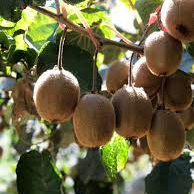Producer

Wild River Fruit, Marysville, CA
Address: 1563 Simpson Lane Marysville, CA, 95901
About Us
The Wild River name was inspired by our farm’s location alongside the Yuba River which surges out of the rugged Sierra Nevada Mountains into the fertile Sacramento Valley in Northern California. For more than a century, gold miners, politicians and large-scale, conventional farmers tried to tame the 10-year flood cycle of the river’s south fork. Our family took a different approach. Led by our patriarch, Gordon Noland, we progressively changed our agricultural practices to adapt to the nuances and rhythm of the river. As a result, Wild River’s orchards and vineyards thrive, naturally nourished by the highly fertile, nutrient-rich topsoil deposited by the river’s overflow.
Our family has farmed this land for nearly 60 years. Over this span, we have diversified to grow more than 30 unique fruit varieties. Additionally, in order to compete in an evolving industry, we built a vertically integrated operation that allows us to give special care to our fruit from bloom, through harvest, packing, storage and shipping. Unlike large corporate farms, we know the provenance of each piece that carries the Wild River™ label and we proudly guarantee our product’s incomparable quality for you and your family to enjoy.
Our family has farmed this land for nearly 60 years. Over this span, we have diversified to grow more than 30 unique fruit varieties. Additionally, in order to compete in an evolving industry, we built a vertically integrated operation that allows us to give special care to our fruit from bloom, through harvest, packing, storage and shipping. Unlike large corporate farms, we know the provenance of each piece that carries the Wild River™ label and we proudly guarantee our product’s incomparable quality for you and your family to enjoy.
Practices
Certifications: CCOF Organic
For decades, Wild River has committed to farming in conjunction with nature to produce the best tasting, most healthy fruit imaginable. Wild River was originally named for the rhythms of the Yuba River, which floods regularly, replenishing the land with fresh layers of topsoil. As a CCOF certified organic farm since the early 1990s, Wild River makes an effort to go above and beyond certification requirements such as composting or manual weed management to actively foster biodiversity and continuously improve its stewardship of the land.
Wild owls live on our Wild River organic farm in special owl-box homes we build for them! Owls play a critical role toward addressing one of the greatest threats facing kiwifruit vineyards in particular – pocket gophers and voles that wreck havoc on vineyard root systems.
Traditionally, many agriculture operations combat rodent threats by deploying poisonous baits that are known to cycle through the food chain. Other growers blast holes in the ground with propane and oxygen, sometimes sending gopher shrapnel across fields. Such alternatives can be both unsanitary from a food safety perspective and harmful for conservation efforts aimed at supporting wild barn owls and other endangered bird species.
These outdated methods are also inferior in terms of efficacy as compared with constructing and maintaining owl boxes.
Recent studies conducted in the region indicate that the average family of barn owls consumes between 2,000 and 3,000 rodents each year and often remains faithful to nesting boxes for extended periods. Based on that number, Wild River can estimate that barn owls living in more than 20 boxes across its 400 acres are eliminating at least 40,000 rodents each year.
For decades, Wild River has committed to farming in conjunction with nature to produce the best tasting, most healthy fruit imaginable. Wild River was originally named for the rhythms of the Yuba River, which floods regularly, replenishing the land with fresh layers of topsoil. As a CCOF certified organic farm since the early 1990s, Wild River makes an effort to go above and beyond certification requirements such as composting or manual weed management to actively foster biodiversity and continuously improve its stewardship of the land.
Wild owls live on our Wild River organic farm in special owl-box homes we build for them! Owls play a critical role toward addressing one of the greatest threats facing kiwifruit vineyards in particular – pocket gophers and voles that wreck havoc on vineyard root systems.
Traditionally, many agriculture operations combat rodent threats by deploying poisonous baits that are known to cycle through the food chain. Other growers blast holes in the ground with propane and oxygen, sometimes sending gopher shrapnel across fields. Such alternatives can be both unsanitary from a food safety perspective and harmful for conservation efforts aimed at supporting wild barn owls and other endangered bird species.
These outdated methods are also inferior in terms of efficacy as compared with constructing and maintaining owl boxes.
Recent studies conducted in the region indicate that the average family of barn owls consumes between 2,000 and 3,000 rodents each year and often remains faithful to nesting boxes for extended periods. Based on that number, Wild River can estimate that barn owls living in more than 20 boxes across its 400 acres are eliminating at least 40,000 rodents each year.
